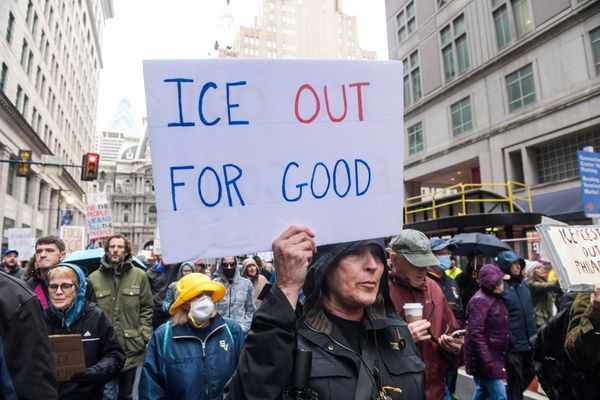
Stevie Jackson was striding purposefully across Selby’s pretty marketplace on a warm Thursday lunchtime when she heard the news. As she stared down at her phone, her sunny disposition gave way to a look of anxiety. The Bank of England had just increased interest rates by another 0.5 percentage points, a record 13th consecutive rise and probably not the last.
Jackson has two young children and works as a cleaner at a local flour mill. She and her partner, who also has children, recently extended their mortgage by another 25 years to a total of 45. That way they hoped they could spread the payments and afford the other rising costs of family life, such as food and energy. “I have to feed the kids,” she says.
The very mention of the word “mortgage” makes her nervous. “It was £800 a month. By extending and paying over extra years, it means we pay less each month. But now they will be going up again. We both have jobs. I don’t know what we do next.”
Close by, Lauren Maher, who runs a clothes shop in the North Yorkshire town, and Alan Hughes, a lorry driver, were on their lunch break at Violet’s Cafe in the town centre. They would also love to own their own home one day but despite being in good jobs feel they are going backwards on that ambition.
They used to rent, but various pressures – including the soaring cost of doing so – mean they are now both living with Lauren’s parents. “Slimmer and slimmer,” said Alan when asked how he rates their chances of one day getting on the property ladder. The story is the same with many young people in Selby: relying on their parents for somewhere to live because rents are so high, never mind being able to afford to buy.

Successive Tory governments since the late 1970s have promoted the idea of a “home-owning democracy” to hard-working people such as Jackson, Maher and Hughes, encouraging them to invest in property, stretch themselves, strive hard, and at the end of it all win the prize of owning their own place.
In much of the Selby and Ainsty constituency, which takes in Sherburn in Elmet, Tadcaster and villages west of York, it worked. The baby boomers and their successors now sit pretty, many with their mortgages paid off, their properties having soared in value in the good times.
Nearby York became a property boom city – less than two hours on the train from London and good for people who want to split their time between the capital and life well away from it. There was a ripple effect in Selby, where prices also pushed upwards. Estate agents say the price of a terrace house in the town has rocketed in the past five years alone. Some admit they were fortunate: “We were lucky,” says a teacher who lives in the nearby village of Riccall with her husband and child. “We got to this village just before prices shot up.”
It may be fine for them. But in what has for years been a very Tory part of North Yorkshire – Selby was formerly a mining and shipbuilding area but is now more in the commuter belt for York, Leeds and Wakefield – the whole model of young people working their way up the ladder to join the boomers seems to have broken down.
Selby and its surrounds feel divided between the haves and have-nots, and now another category – those struggling in the middle. There are 12,300 people like Jackson in the Selby and Ainsty constituency who own homes with mortgages or loans. They now face average increases this year of £2,700 in payments, according to figures compiled by the Labour party.
The one comfort for enterprising young people such as Maher is that she didn’t take the plunge and get trapped too. But she is scathing about politicians who have let her generation down. “I have lost all hope and faith in them,” she said.
For the next four weeks, Selby and Ainsty will be the focus of national attention, as one of three byelections taking place on 20 July. At a time of growing economic uncertainty, they will all be vital barometers of public opinion before a probable general election next year.

Selby and Ainsty should be the one that is not much of a contest. The constituency has been solidly Tory since it came into being under boundary changes in 2010. At the last general election, in 2019, Nigel Adams won it for the Conservatives with a majority of 20,137 over second-placed Labour.
Keir Starmer’s party initially indicated that on 20 July it would be training most of its guns down south in Uxbridge and South Ruislip – the seat vacated by Boris Johnson when he decided to quit parliament. The Lib Dems will be focusing mainly on Somerton and Frome in Somerset, where the Tory MP David Warburton has stepped down and they are strong.
But after Adams, a Johnson supporter, quit his seat two weeks ago in protest about the way the former PM was treated over Partygate and his resignation honours list (Adams had been rumoured to be in line for an honour, but the letter never arrived), Labour is increasingly beginning to think that it could be in with a chance in this Yorkshire seat.
Early last week, Labour insiders were playing down the party’s chances, saying they hoped for a good second place, and would use any progress as a basis to go on and take the seat when it is fought under another set of boundary changes at the next general election. But with every passing day there is a growing sense of Tory vulnerability – of political unpredictability fed by economic fear – here and everywhere else.
During the week, Dan Jarvis, the Labour MP for Barnsley Central and former mayor of South Yorkshire, was in Selby helping Keir Mather, the party’s 25-year-old candidate, who was born in Hull and grew up locally. When questioned on whether Labour could actually win, Jarvis was careful.
“There is a lot of anger with the government,” he said. “People have been messed about. We are asking them to lend us their vote.”
For Rishi Sunak, the past week could hardly have represented a worse launchpad for a period of important electioneering.
Only last weekend, the prime minister and his team seemed to see a less troubled path ahead with Johnson out of the way. Sunak’s hope has always been to portray himself as a steady hand on the nation’s tiller – particularly with respect to the economy – after the turmoil of Johnson and his successor Liz Truss.
But on Wednesday it all began to unravel when new figures showed inflation had remained unchanged at 8.7% in May, driving expectations that the Bank of England would have no choice but to lift interest rates once more.
The next day, the Bank duly responded with a heftier rise than many had predicted – and immediately out came the economists to forecast worse was yet to come. The market view was that the Bank would have to keep its base rate above 6% until June next year, suggesting that the pain would continue in the run-up to the next general election.

Simon Pittaway, a senior economist at the Resolution Foundation, tried to offer a glimmer of hope but struggled: “Of course, market expectations can be wrong, and rate rises may not turn out to be as bad as feared. But with three-fifths of Britain’s £15.7bn mortgage hike still to be passed on to households, rising repayments will deal an ongoing living-standards blow to millions of households in the run-in to the general election.” Other economists warned of a looming recession, with some saying that, unfortunately, one was now necessary if inflation was to be tamed.
Sunak’s big problem is now one of personal credibility at a time when so many are struggling and looking for hope from somewhere. Back in January, the prime minister made five pledges: to halve inflation this year; to make sure the national debt was falling; to grow the economy; to bring down NHS waiting lists; and to stop small boats crossing the Channel. All now seem in jeopardy.
At prime minister’s questions last week, Starmer highlighted the case of a police officer from Selby who was having to sell his home because his mortgage payments had soared. “Why should James and his family pay the cost of the prime minister’s failure?” he asked.
On Saturday, the shadow chancellor, Rachel Reeves, announced a set of tailor-made Labour pledges for Selby and Ainsty which all seemed to bring into even sharper focus how Sunak was struggling to honour his promises.
They included plans to set up “financial support surgeries” run by charities and other organisations to help people chart a path through their economic difficulties and deal with what Labour now calls the “Tory mortgage penalty”.
There is no doubt Labour senses a chance. When pushed, Jarvis added that it would be tough but that his party was in it to win it: “We are not here to make up the numbers. We are not mucking around,” he said.







